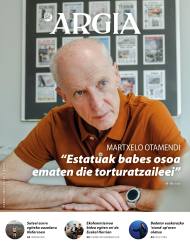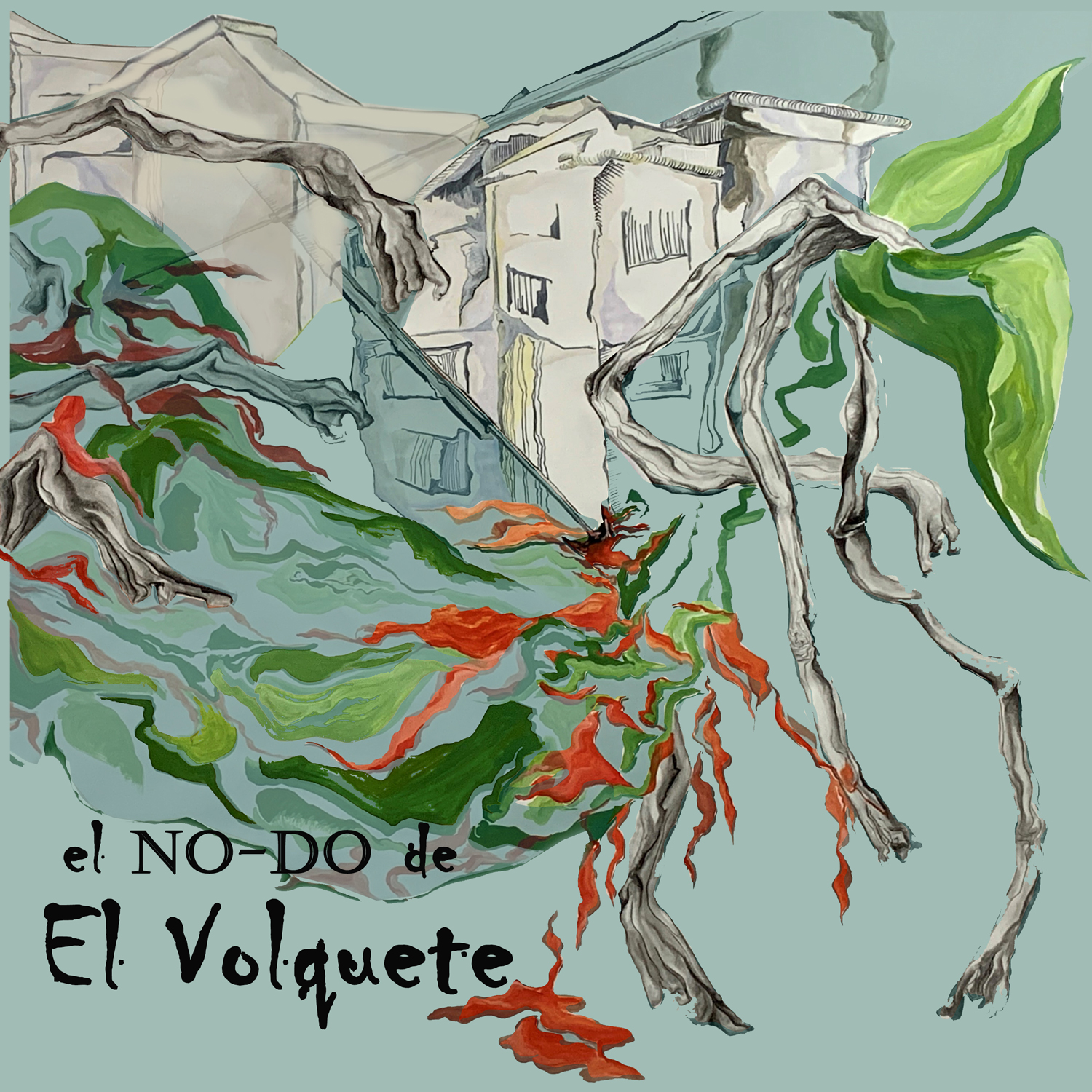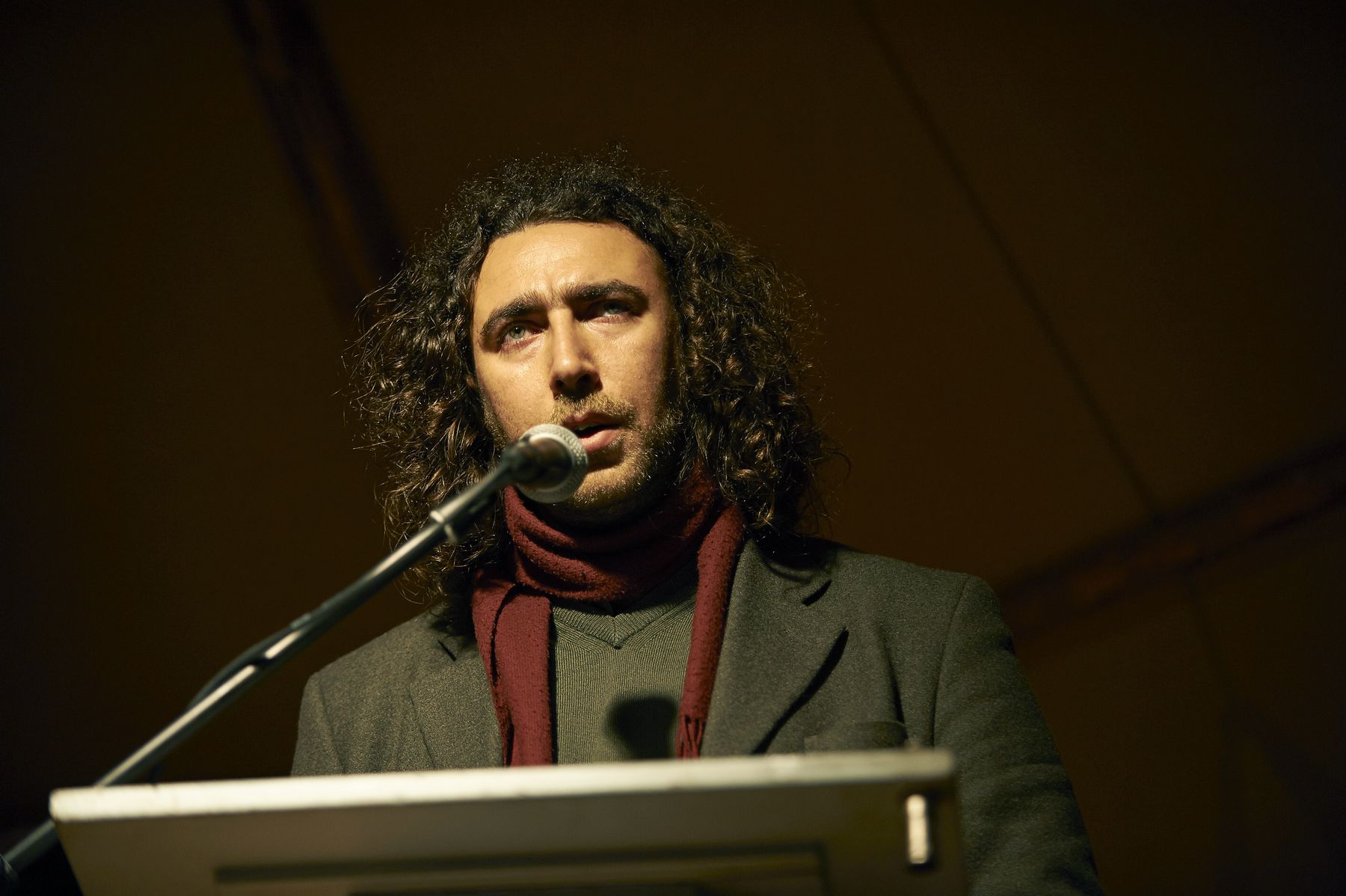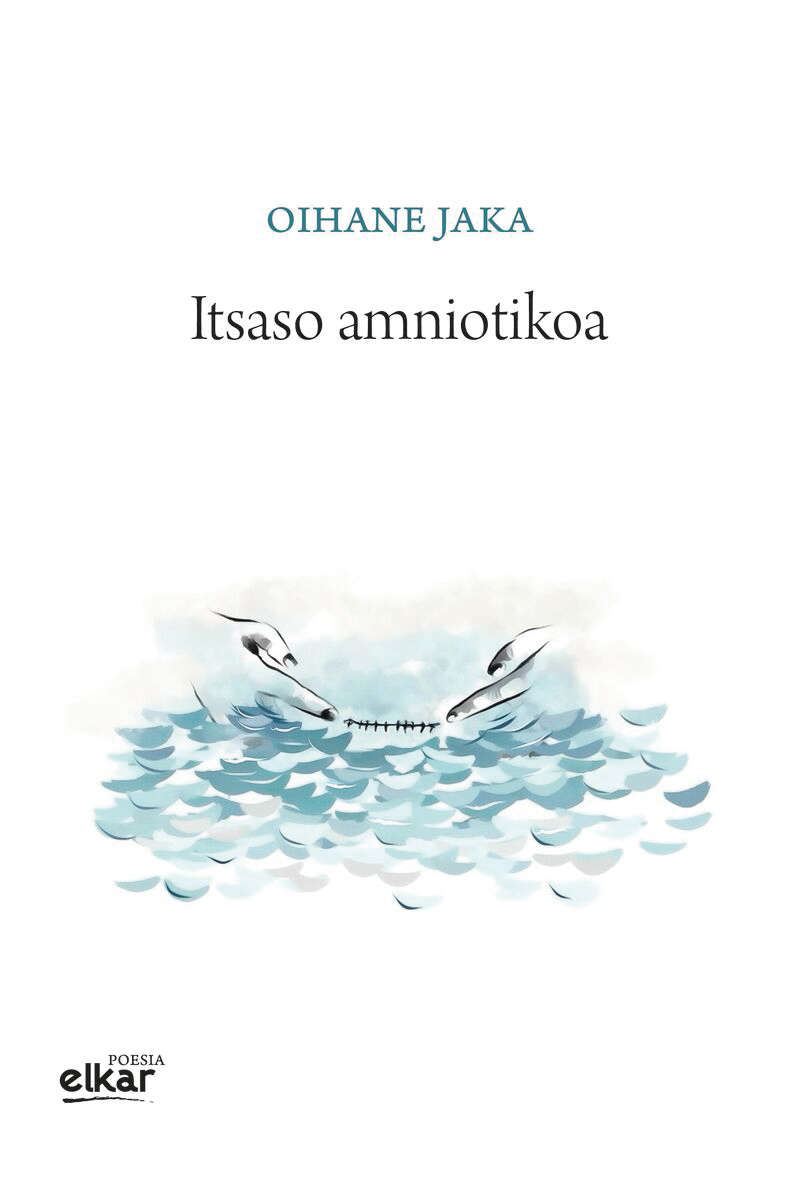Stand-up wave: foam
- We like to climb the watchtower, watch the waves that come from afar and extend their arrival to the four winds: “Look, the wave of the Basque series!” “There, behind those rocks, the new Basque wave!” or “And that? Isn’t that the latest Basque tsunami trap that saves the Basque?” Many Basques are waiting for a wave to revolutionize our world. Well, we have a big prediction for those few. Here's the stand up wave in Basque! Or the Olatuño, the Sicario.
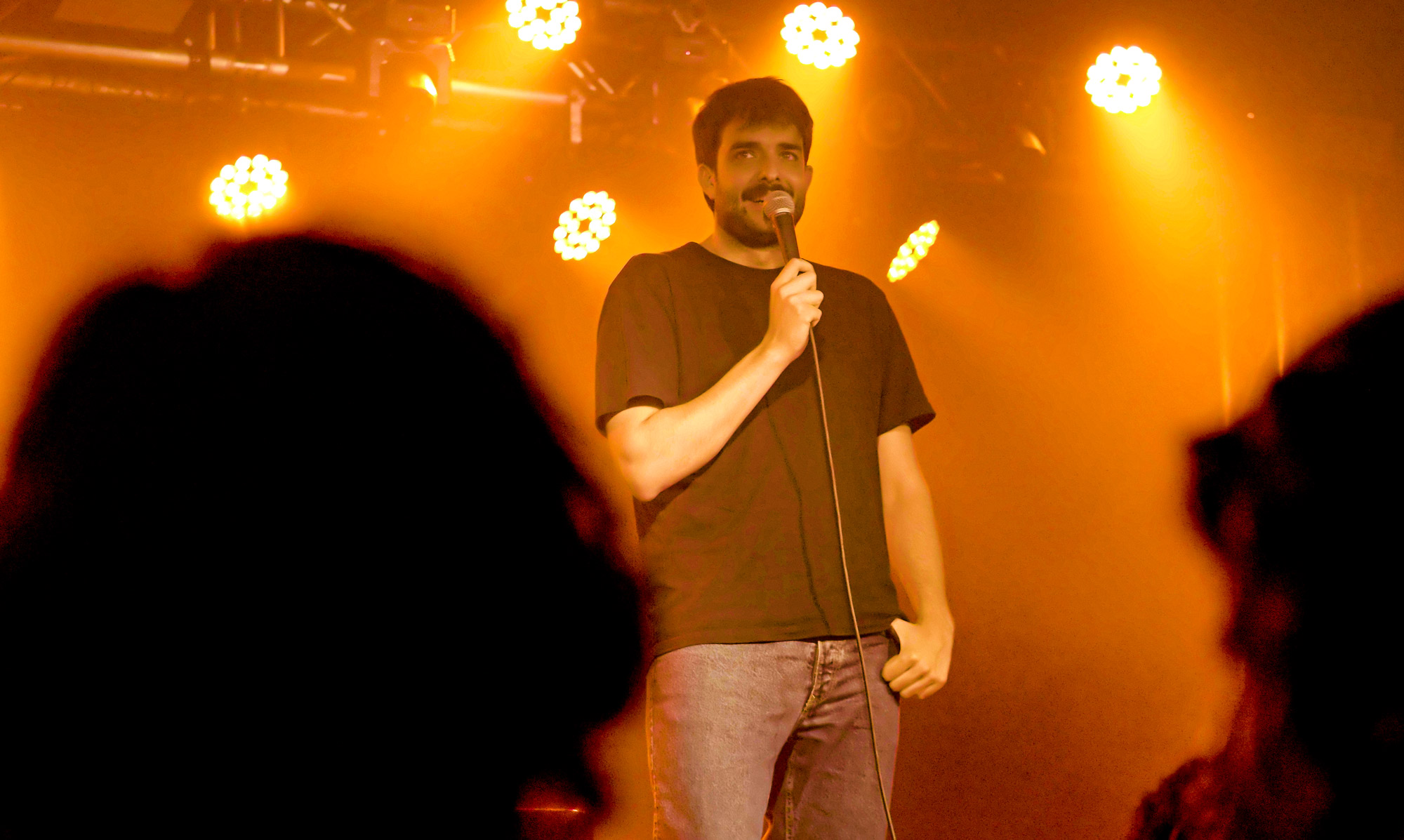
They've been called mood monologues. It's known as stand-up comedy in the anglosphere. Like most diseases, it also originates in the United States. He came to Erdareta with strength with the new millennium, among others, by the hand of Paramount Comedy and The Comedy Club, which also had an impact on the Basque Country. But, with the exception of exceptions, stand-up in Euskera has developed for many years as a marginal phenomenon. Until recently.
Since the 2010 decade, the stand-up culture has experienced a new flourishing. Both networks and streaming platforms have made the U.S. and England humorists known outside their borders, and new codes, forms and points of view have been extended to make humor around the world, reaching Basque scenarios. It seems that a scene is being created where the Basque, the stand-up, the humorists and the public get married. But what is its possible development? Will something like this come out of here? Does it matter? As is usually done when there is no clarity to answer the questions, let us try to find the answers in the examination of the attached table. Let's look at Catalonia.
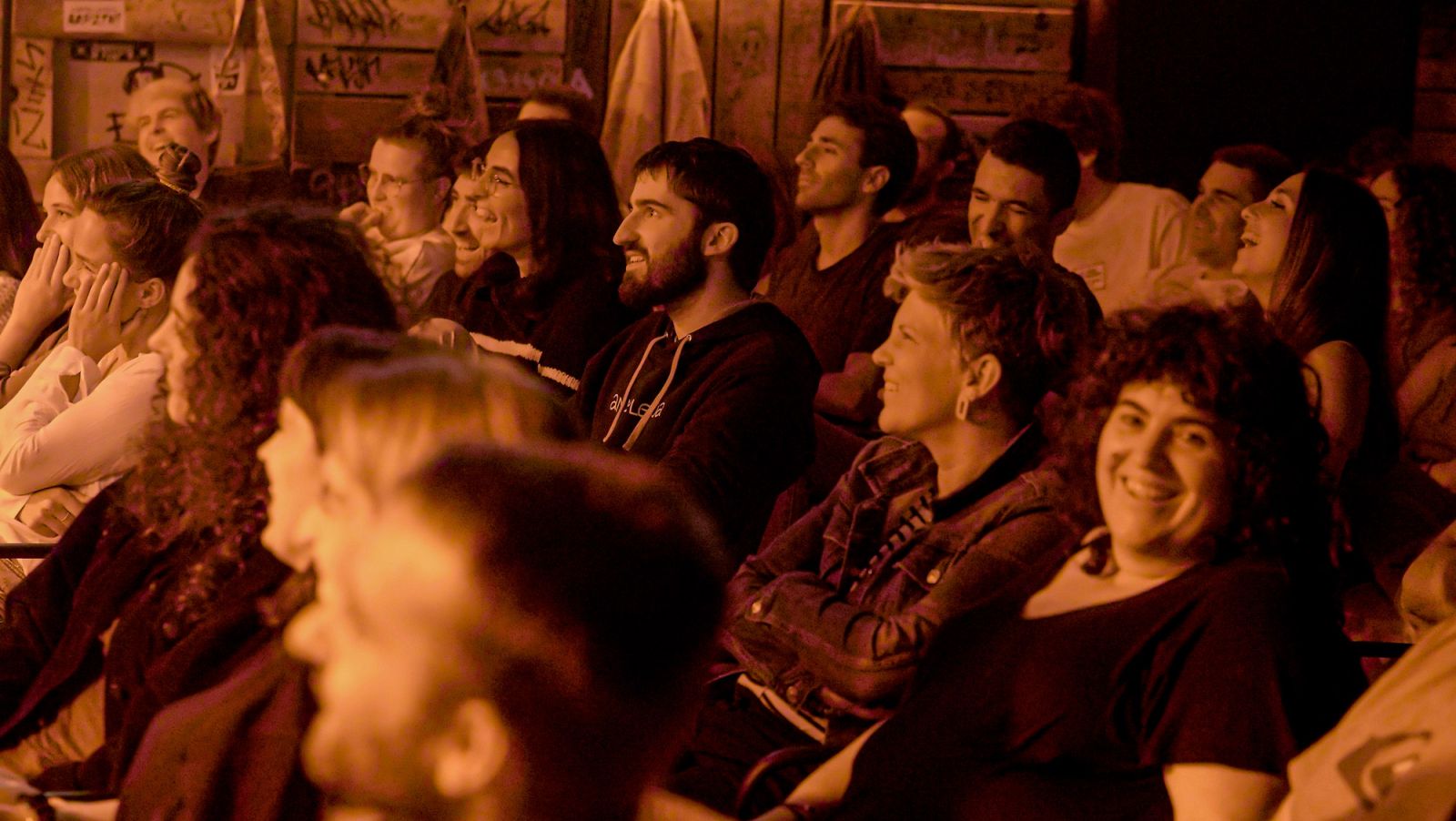
What was an exception, when
we talk about Catalonia, we are talking (mainly) about Barcelona. And that is, where there weren't many stand-ups, there's now an intense, exuberant scene of humor. This scene involves the Vitorian humorist Eñaut Zuazo. Without the possibility of monologues in Euskal Herria, he discovered for the first time in Catalonia the right environment to rise to a stage.
.jpg)
These environments are the result of the development of many small jobs: “Seven years ago there were hardly any monologues, let alone in Catalan. Now we are over a hundred humorists.” Madrid is the national epicenter both in the script and in professional comedy. Perhaps this is why an alternative scene is created in Barcelona: “The lack of work, the lack of many skills among them, has created a great family. One learns from another and together we walk.”
But what is the mother tongue of this family? The humorist Hey Sherman says that “Catalan on the Barcelona scene was exceptional” in recalling the atmosphere of years ago. A few were an exception until they joined the determination to evolve. In 2017 he founded the Soterrani stand-up show with other members and the open mica in Catalan L´Altre Mic.
.jpg)
The open
opens the way because we Anglo-Saxon have opened this term to him. But anyway, they're humorous open microphones: spaces where new people first come up to the table and experienced people first make the new texts public for the first time. In Barcelona, many Catalan humorists have formed on Tuesday of L´Altre Mic. For the first time he climbed the Eñaut Zuazo board. If necessary, La Llama was organized in the bookstore. It is another meeting point of reference of humor in Barcelona, which includes books, training and shows. All for humor.
Ignasi Taltavull is one of the ones you can find through The Call. Ruina has become known as the author of the podcast, but she is also director of the specialist comedy Mític de Modgi. It is the first recorded in Catalan. Taltavull highlights the importance of Open. “All the material that Modgi recorded in his species has gone through the open mics until refined. Comic books and personality are essential tools.” Tool and meeting point according to Hey Sherman. “They have the function of meeting point, and as they develop complicity with their colleagues, professional projects may emerge.”
If the humorous scene is a plant, holidays are roots. But this plant has also given flowers and fruits in Catalonia. Even in the shadow of Castilian, there are more and more proposals of humor in Catalan, whether podcasts, radio programs, shows or festivals. And this has also meant a change in the customs of those who were going to do it in Spanish: among others, the Argentine humorist Andrés Fajngold and Eñaut Zuazo himself have dared to do it in Catalan.
This is not new,
the Mediterranean Sea is beautiful, but is fresh water bad from the local river? In search of stand-ups in Basque, we have to go back to the year 2000. Under the influence of Spanish references El Club de la Comedia and Paramount Comedy, some discovered the perfect excuse for sharing cheesemoners’ taboos with musicians and bertsolaris. One of them is the humorist and actor Jon Plazaola. “It was a new stand-up for everyone, and following laws that I had invented myself, I tried to create my own style in Basque.” Remember that, since they were very few, it was very successful. It has been 23 years since the beginning and has just returned to the stand of Tu Tum, Platz! acting.

The successful Antton Telleria Nekatutak tour has led the stand-up in Basque to lands that had not yet been piled. Is it that much? Yes and no. Other humorists, with fewer foci, have laughed rooms and frontons from all over the Basque Country. Couples from Idoia Torregarai and Mirari Martia, among others. What's at peace, in 2017, a retransmission in peace was created that took the stage almost 150 times. With long or short performances they have visited so many other towns. Small Peoples can compete with Great Hell. Although they are close to the stand-up keys, their format is double. That is, in the words of Torregarai, the formula of success: “We use a very similar mood and we protect ourselves and enjoy.” They have been diffusing paths, as in addition to humor, they bring unheard contents to where they go: “It’s uncomfortable for some to hear two women talk about sex and without a living mouth.”
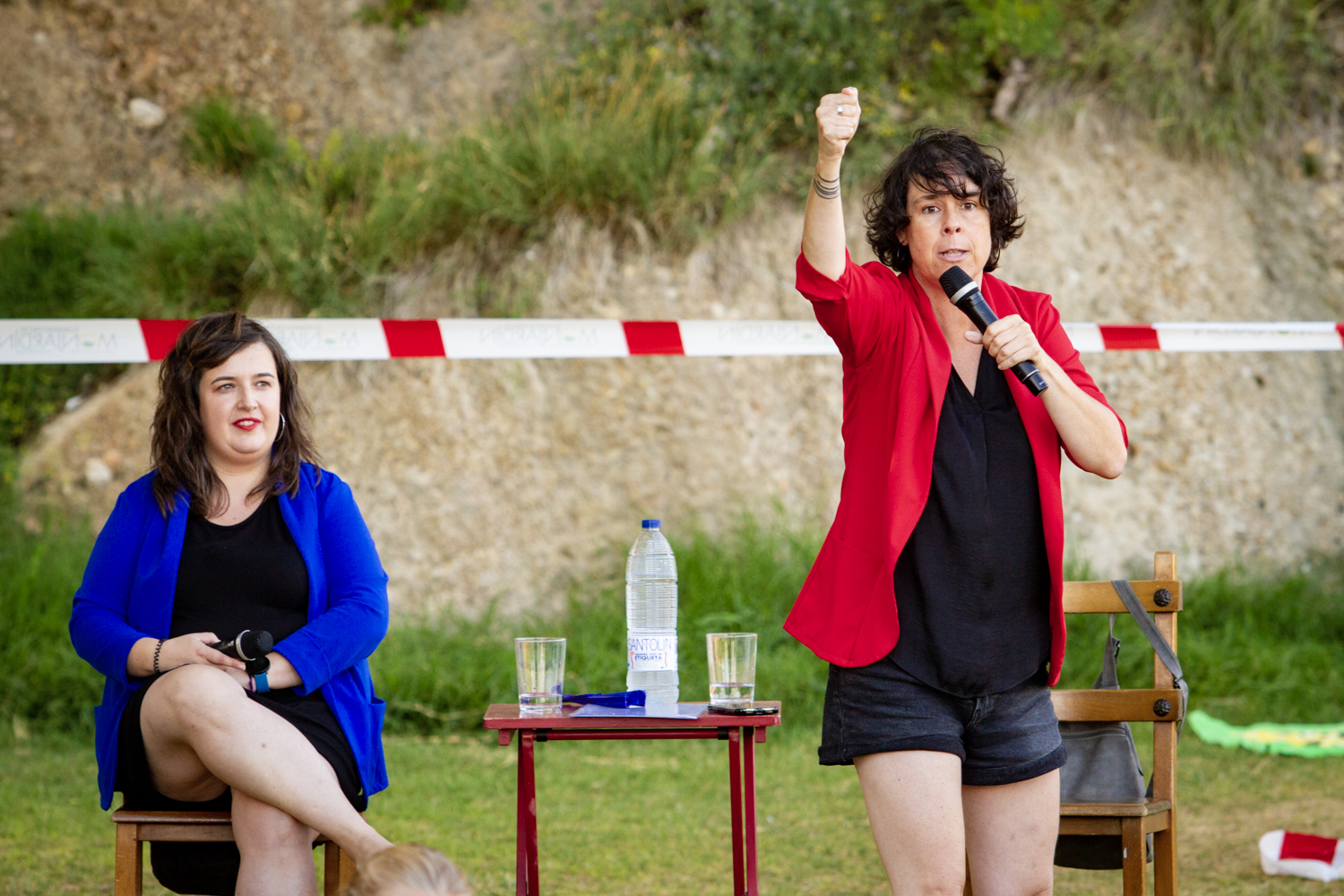
To reflect from humor about
life Now yes: Antton Telleria and Nekatuak. Although there have already been stand-ups in Basque, tolosarra is the first one that can be assimilated to contemporary international shows. Yes, at least without self-esteem being hurt by comparison. The thousand tickets of his double session at the San Sebastian Main Theatre were sold in a week. She acknowledges that working on radio and television has given her visibility, but she has been hiding for years learning and preparing herself. “I have taken this wager very seriously with a lot of desire and a lot of work. I think people have appreciated it.” The latest performances of the show have been recorded and soon intends to open as a special comedy.
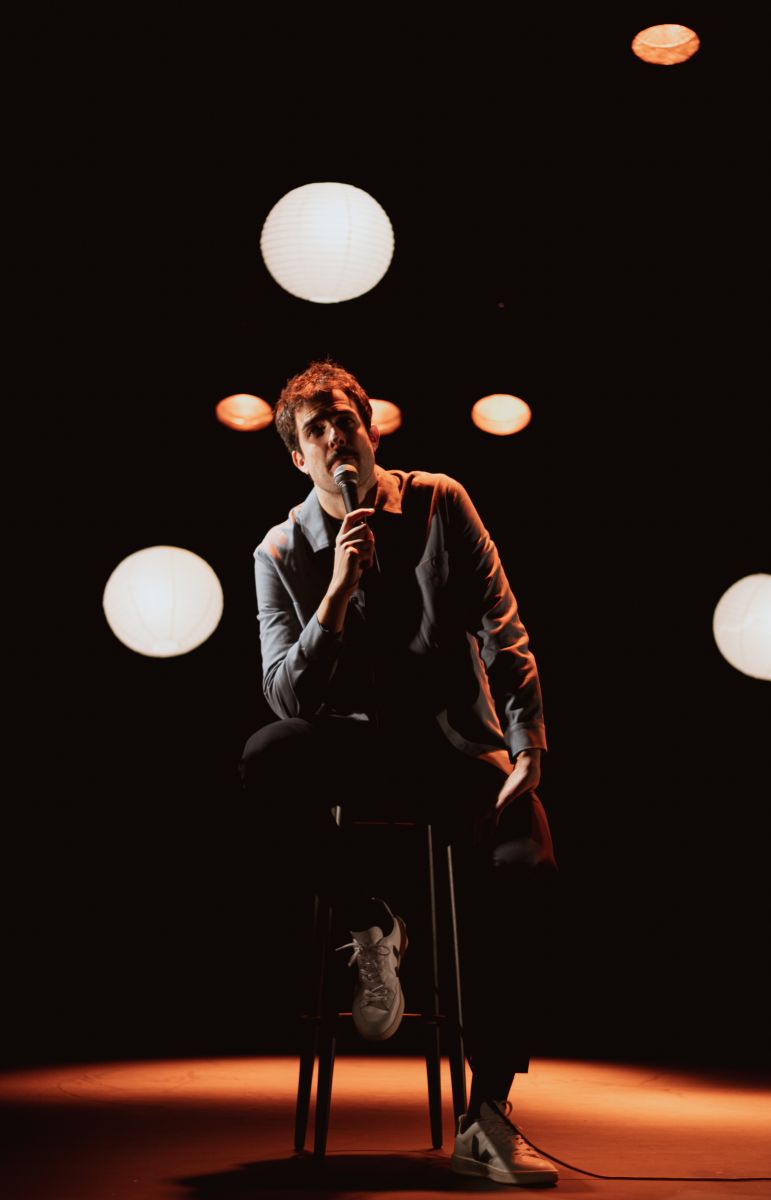
Telleria has made a conscious effort to get away from the references of classical monologues coming from Spain, believing that they are topical. “Once immersed in the stand up, I found that there is a huge universe that serves to reflect from humor and to look at our reality.” But to get into this game, the viewer also has to strive. It's compared to music: pop choruses are beautiful, but there are more things that are delicious if you look at them.
In addition to carrying the village show in town, Telleria regularly participates in increasingly organized collective events at public holidays or gaztetxe. In it he shares scenery, beer and concerns with other humorists who have grasped the stamp hard in recent years: Maria Blanco, Julen Portillo, Ana Goitia, Iker Plazaola… These sessions offer the possibility of short texts, but gradually create a network of relationships between humorists.
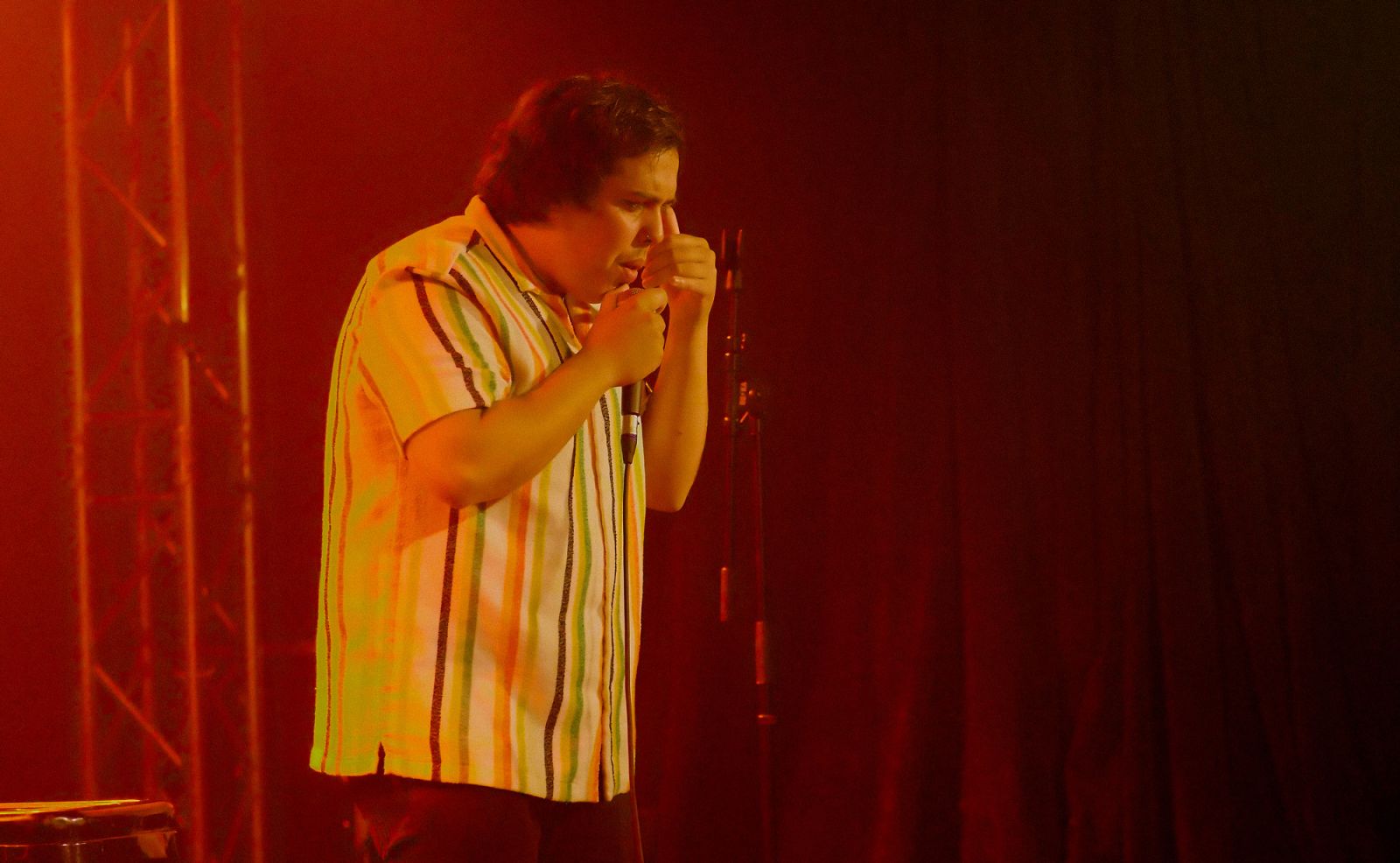
DespotorrOpen and Karkarkarkar
Previously we mentioned open mic or open microphones. In some Basque capitals there are also some on a monthly basis. Ekekei Comedy in Vitoria, DespotorrOpen in Bilbao and Karkarkar in San Sebastian, among others. It was created by humorist Ane Lindane along with Raquel Torres, DespotorrOpen. They both had the same concern and the same problem, they had to wait for monologue sessions that others offered. “This environment is usually masculine and humorous, uncomfortable. So we decided to make it our own. An open, feminist, in our style.” It is the first open-mica organized in Bilbao and the only one in Euskal Herria that prioritizes women and dissident genres.
.jpg)
As a result, many women who “would not dare otherwise” have managed to climb the stage for the first time. Open-mics are essential: “If you don’t have a more informal environment, where will you get that security to make a show? How will you know if a part is graceful?” So far, most humorists who have participated in DespotorrOpen have done so in Spanish. But Lindane makes his initial presentation in Basque and strives every time to invite someone to do so in Basque.
Among all the Open Mic, the only one entirely in Basque is Karkarkar, which has recently been launched in Donostia. The Stand-up tester bears the last name and in the first two sessions have gathered humorists of very different trajectory, both experienced and incipient. For example, Eñaut Zuazo and Beñat Iturbe have performed the stand-up in Basque for the first time. Maialen Sorzabalbere is a humorist with a long career in the Barrexerka group, but Karkarkar has been the excuse for premiering on the stage monologue. “If it wasn’t because I found those formats, I wouldn’t have taken that step by myself.” He likes to see and do and believes it is a great opportunity as a receiver. It's not the only thing you seem to think. In all the performances of both DespotorrOpen and Karkarkar at least 100 people have gathered.
That's what gives strength to what we've called the stand-up wave. Not only the surfer stars on the board, but also those who have taken on the role of organizers, and most importantly, the modest spectators are hungry. And now what? Before reaching the beach the wave explodes between foams and applause to get lost later in oblivion? Or will it reach the earth and shake the pillars of television, Euskaldunization and cultural programming? Who knows? Ask the ChatGPT or the trusted player.
Shielding work
Stand-up and television have a two-way relationship. There are humorists who have jumped onstage from the screen. And, on the other hand, among those who make live humor, many are dedicated to television, if not in front of the camera, in between papers, to the writer. You also try to display the stand-up and you don't need to go to Netflix. Barre Librellevó gave ETB1 brief humor monologues until June 2021. Jon Plazaola, presenter and screenwriter. He's happy because the people who were on the show now see monologues. “Some worked before going through our program, and others, perhaps the program has given them the little support or push they needed.”
But ay: bringing the stands up molds to television is like trying to surf with a bicycle. Of course, if it's a public television. Antton Telleria has taught two very sweet disciplines. It says that stand-up does not have the conditions and circumstances of public television, and that direct intimacy allows for a little more exploration of borders. “On TV a mood has been made in a very nice way, that does not bother, that will not cause a fuss.” The opinion is similar in Maialen Sorzabalbere, writer of several ETB1 programs. It says that there is a greater tendency to censure cars on television.
Eñaut Zuazo has also experienced with frustration the lack of possibilities of making humor on television: “I would like a Basque who wants to do monologues or audiovisual content in the future not to have to go outside.” But we also hear about this conflict in Catalonia. TV3 presented last year the Free Zone late nighta, a working group from the stand up. But a joke from humorist Manel Vidal provoked the anger of some parliamentary parties. TV3’s management decided to dismiss Vidal. Presenter Joel Díaz and some writers abandoned the program in solidarity.
Even though I felt like Escorbutin in my youth, Antton Carretero, born in Aramaio, has always had
a longer look: punka yes, of course, and the kinya is better, but he looks at many other styles going through prejudices, canallagos, more sensitive… All of them help to bring... [+]
We opened the poems book by Oihana Jaka and found two deals. One father and another son. It is worth noting for its direct relationship with the poems we will find. The book is structured in three parts:
Hamaika urte, Hamaika hilabete eta Hamaika egun. Number eleven is also... [+]









